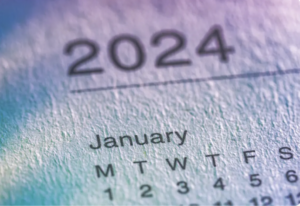 The Supreme Court ruled in April 2010 that debt collectors cannot claim ignorance of the law as an excuse for violating the Fair Debt Collections Practices Act.
The Supreme Court ruled in April 2010 that debt collectors cannot claim ignorance of the law as an excuse for violating the Fair Debt Collections Practices Act.
The court’s ruling severely limits the “bona fide error” defense under the Fair Debt Collection Practices Act (FDCPA) and makes it easier for consumers to sue debt collectors for sending erroneous debt collection notices.
Debt collectors will be unable to avoid liability by using a provision meant to protect them from lawsuits due to minor clerical errors.
The Supreme Court’s decision stems from a lawsuit filed on behalf of homeowner Karen Jerman after foreclosure proceedings were initiated against her by the firm of Carlisle, McNellie, Rini, Kramer & Ulrich on behalf of Countrywide. Ms. Jerman had already made her mortgage payment.
The notice sent to Ms. Jerman requested a written dispute within 30 days or the debt would be deemed valid. Ms. Jerman disputed the debt and Countrywide later acknowledged she had in fact paid the debt.
Despite the fact the Carlisle firm withdrew the foreclosure lawsuit, Ms. Jerman sued the law firm. She argued the Fair Debt Collection Practices Act had been violated because the notice alleged the debt would be assumed valid unless it was disputed in writing.
Carlisle admitted its initial notice intended dispute claims be submitted in writing but argued they were not liable under the FDCPA because the violation was an unintentional or a “bona fide error.” The Fair Debt Collection Practices Act does not require disputes to be “in writing.” Carlisle stated they were unaware that “written” disputes are not required under the FDCPA.
The lower court agreed with Jerman that the law firm violated the FDCPA but ruled the law firm was shielded from liability because the violation was unintentional and a result of a bona fide legal error. An appeals court decision affirmed the ruling which resulted in the case being sent to the United States Supreme Court.
In a 7-2 opinion by Justice Sonia Sotomayor, the Supreme Court said the “bona fide error defense” doesn’t protect debt collectors who make mistakes when interpreting the legal requirements of the federal Fair Debt Collection Practices Act. The law imposes civil liability for certain debt collection practices, but provides an exception—when the “the violation was not intentional and resulted from a bona fide error.”
The bona fide error defense does not extend to mistakes of law, Sotomayor said. “We have long recognized the ‘common maxim, familiar to all minds, that ignorance of the law will not excuse any person, either civilly or criminally,’ ” she wrote, quoting from an 1833 opinion.
Carlisle had argued misinterpretations of the law were written into the Fair Debt Collection Practices Act but Justice Sotomayor and the majority disagreed ruling that a mistake of law defense was not explicitly provided to debt collectors by Congress.
As the debt collection industry continues to thrive, this ruling sends a clear message that debt collectors must abide by the law or risk being punished by the law.





















